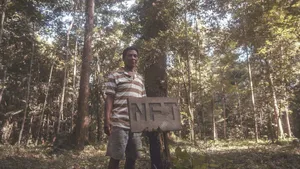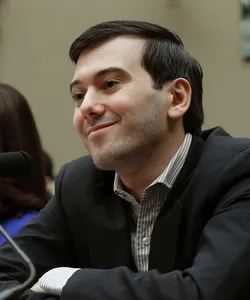CEO of Titanium Blockchain Infrastructure Services pleads guilty to securities fraud
Crypto platform Immutable lays off 17% of its gaming division staff
The fired employees quickly began preparing a legal fight against immutable, questioning whether their firing was legitimate when many of the people who were sacked were about to reach the vesting date for more than $1 million in stock options.
- "Australian crypto platform Immutable sacks 6% of staff despite plans to 'hire aggressively'", news.com.au
- "Sacked crypto unicorn staff plan legal challenge to redundancies", The Australian Financial Review
Brazilian authorities challenge NFT company Nemus after it claims ownership to land in the Amazon, allegedly pressures Indigenous people to sign documents they could not read
On July 20, they issued a press release claiming that "the World's First Non-Fungible Territory has been officially renamed by indigenous people in Brazil in coalition with Nemus". The company claims to own 41,000 hectares (~100,000 acres) of land in the Amazon.
On July 25, Brazil's Federal Prosecution Office (MPF) issued a statement that they had demanded Nemus provide proof of ownership of the areas they claim, clarification on the projects they've been promising online they would undertake, and proof that they've received authorization by the National Indian Foundation (FUNAI) or any other public body that would allow them to operate in the area and engage with various Indigenous groups.
According to the MPF, members of Indigenous groups in the area reported the company had violated their rights. They also explained that Nemus had expressed to them their plans to use heavy machinery to open an airstrip and build a road in order to access Brazil nut groves in the area. Apurinã leaders alleged that company representatives had pressured Indigenous people who do not read well to sign documents, and did not provide them with copies.
- "MPF aciona empresa que vende ativos digitais (NFTs) de áreas da Amazônia", Ministério Público Federal (in Portuguese)
- Press release by Nemus
After five years in prison for a Ponzi scheme and a lifetime ban from the pharmaceutical industry, Martin Shkreli announces his new venture: a web3 drug discovery platform
In 2018, he was sentenced to federal prison for unrelated securities fraud; a U.S. Attorney stated he "essentially ran his company like a Ponzi scheme". He spent five years in prison, and was released in May 2022.
Shkreli is also banned from the securities industry, and from serving as an officer or director of any publicly traded company.
If this was anyone other than Martin Shkreli, I might have been surprised to hear that, only a little over two months out of prison and while still staying in a halfway house, Shkreli is launching a "web3 drug discovery software platform".
- "Announcing Druglike - a Web3 Drug Discovery Platform", press release
- Martin Shkreli, Wikipedia
$4.5 million taken from Teddy Doge project in apparent rug pull
Although the project admins blamed the theft on an outside attacker, writing on Telegram that they were "not certain whether it is a bug in our cross-chain bridge or a leaked developer wallet", that is a common refrain by developers who rug pull their own projects.
Attacker makes off with $1.1 million after successful governance attack on the Audius web3 music platform
Audius halted the token and smart contracts while they patched the bug, and brought the network back online shortly afterward. The attacker had found and exploited a vulnerability in the way the contracts were written which allowed them to rewrite the governance voting rules and delegate 10 trillion AUDIO tokens to themselves for voting purposes. They then used those tokens to pass the malicious proposal. The contracts had been audited by OpenZeppelin and Kudelski, but neither group caught the vulnerability. Audius stated that a plan for dealing with the loss of community funds was still under discussion.
GameStop's new NFT platform features an NFT mimicking a victim of 9/11
One of their artists, "Jules", created an NFT clearly modeled after The Falling Man, a well-known photograph of a man falling from the upper floors of the World Trade Center during the September 11 attacks in New York City. The NFT is also titled Falling Man, and pictures a model in the same position, but wearing an astronaut suit.
Not only is GameStop selling an NFT of the victim of a tragedy, it's a featured image when Googling "GameStop".
- "Falling Man", GameStop NFT
- The Falling Man, Wikipedia
Celsius customers send letters to the judge in the bankruptcy case
Many customers write of being convinced by Alex Mashinsky personally, particularly in his weekly "AMA"s where he regularly claimed that Celsius was a safe platform with substantial reserves that could cover any potential losses. Mashinsky often denigrated traditional banks, referring to Celsius as a better and safer option.
Some of the letters are particularly heartbreaking, with customers referring to suicidal ideation or saying that they've been too ashamed to share the news of their financial losses with their family. One woman included a copy of an email she sent to Mashinsky and Celsius support, pleading for them to allow her access to her crypto, and including an ultrasound photo of a baby. "I do need the fund to pay for the hospital, doctor and baby items such as cot, clothes, nappies etc. I also need the fund to pay for school fees for my two other school aged children," she wrote.
Founder of My Big Coin convicted of $6 million crypto fraud
- "My Big Coin Founder Convicted of Cryptocurrency Fraud Scheme", U.S. Attorney's Office of the District of Massachusetts
Former Coinbase product manager charged with tipping off co-conspirators about tokens that were about to be listed on the exchange
Wahi allegedly used his access to highly confidential information around which cryptocurrency tokens would be listed and when the news would be announced to tip off his brother and friend, who would then use multiple anonymous Ethereum wallets to purchase large quantities of the token before the prices spiked on the news. According to the press release, the two took positions in at least six tokens before Coinbase announced in April 2022 that they would be listing them on the exchange. The DoJ said that the scheme had generated approximately $1.5 million in gains. The DoJ acknowledged a "Twitter account that is well known in the crypto community", likely referring to Cobie, who identified the suspicious activity.
The DoJ also reported that when Coinbase's director of security operations contacted Wahi in May asking him to attend a meeting regarding the suspicious activity, Wahi purchased a one-way flight to India in an attempt to flee the country. He was stopped by law enforcement.
The U.S. Attorney for the Southern District of New York stated in the press release, "Today's charges are a further reminder that Web3 is not a law-free zone... fraud is fraud is fraud, whether it occurs on the blockchain or on Wall Street."
Each of the charges (four against Wahi, two each against his brother and friend) carried a maximum sentence of 20 years. In May 2023, Ishan Wahi was sentenced to two years in prison; Nikhil was sentenced to ten months in prison.
- "Three Charged In First Ever Cryptocurrency Insider Trading Tipping Scheme", U.S. Department of Justice
- Indictment







![Correspondences of my email sent to support on 15 Jun 2022: To: support@celsius.network Cc: ceo@celsius.network Dear Alex and Celcius support, I am writing this email to ask for your special consideration to allow me to make a small withdrawal on my BTC held in Celcius. I understand that Celsius made the decision to pause withdrawals in a volatile market condition, but do hope that you review my case and give me special permission. I am 5.5 months pregnant with my third child. I am expecting to give birth in early October and I do need the fund to pay for the hospital, doctor and baby items such as cot, clothes, nappies etc. I also need the fund to pay for school fees for my two other schools aged children. I have attached a recent scan of my baby and a letter from my obstetrician confirming my pregnancy and planning for admission into the hospital. Scan of my baby that am carrying: [ultrasound photo of a fetus]](https://primary-cdn.web3isgoinggreat.com/entryImages/resized/celsius-doc104_300.webp)
